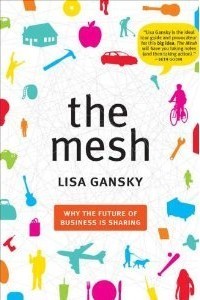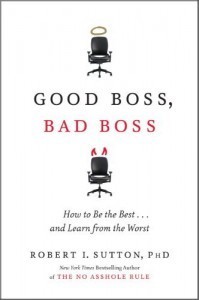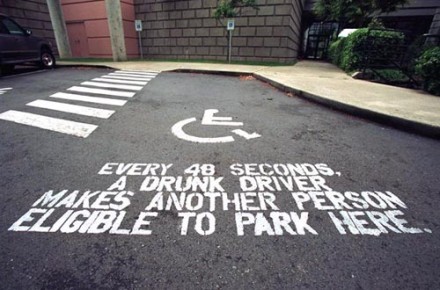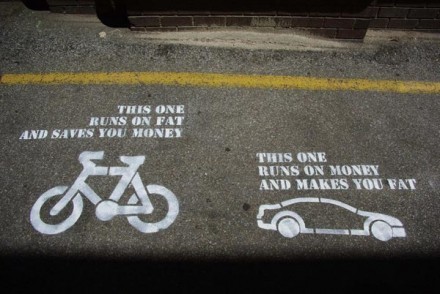Daniel H. Pink's Blog, page 21
October 6, 2010
Idea of the day: Mini genius grants
 Over at the HBR blog, Julia Kirby has a proposed an innovation that is brilliant (and that I wish I'd thought of myself.) You know how each year the MacArthur Foundation awards those famous genius grants? How about if organizations did something similar?
Over at the HBR blog, Julia Kirby has a proposed an innovation that is brilliant (and that I wish I'd thought of myself.) You know how each year the MacArthur Foundation awards those famous genius grants? How about if organizations did something similar?
In a great post, Julia lays out the evidence that unstructured time and unofficial activity — for instance, the 20 percent time experiments of companies like Google, 3M, or Genentech — are ideal conditions for creativity. That's why she encourages organizations to:
. . . be is inspired by the model of the MacArthur awards. If you're in management, any slack time you give a talented employee to pursue an idea is a mini 'genius grant.' It doesn't have to be a half-million dollars — a chunk of release time might suffice. The key, really, is the signal that such creativity is valued and the recognition that people tend to come up with great stuff when they're allowed to take an occasional flyer.
Just as FedEx Days (which I write about in Drive) have begun to spread like crazy to companies beyond Atlassian, which invented them, I'm guessing that this idea will also go viral before too long.
October 5, 2010
When "I do" becomes "I don't"
 Last week, the Population Reference Bureau crunched some Census data and disgorged a rather shocking statistical nugget: For the first time in U.S. history, the number of young adults (those between 25 and 34) who have never been married exceeds those who are married.
Last week, the Population Reference Bureau crunched some Census data and disgorged a rather shocking statistical nugget: For the first time in U.S. history, the number of young adults (those between 25 and 34) who have never been married exceeds those who are married.
A Wall Street Journal story adds some additional perspective: "The long-term slide in marriage rates has pushed the proportion of married adults of all ages to 52% in 2009, according to the Census, the lowest share in history. In 1960, 72.2% of adults over 18 were married."
I don't believe that demographics are destiny necessarily — but these numbers do qualify for what I call a BDD, a Big Demographic Deal. The implications are potentially huge — in economics, culture, politics, and business. Here are some questions off the top of my head:
Economics: It's harder to buy a house with one income than two, and tougher to commit to a gigantic purchase if you're living together instead of officially hitched. Is this trend another reason — i.e., weaker demand — that the housing market could stay sluggish for a long while? At the same time, these data seem further proof that women are gaining power economically. (Indeed, they're already a majority of the U.S. workforce and, on average, are beating men on educational attainment.) Is this phenomenon a sign that women are finally gaining something close to economic parity? If so, what does that mean for everything from wage inequality to the work-family practices of companies?
Culture: We're already hearing about 20-somethings delaying adulthood. Is this, like the new health care law's allowing people to stay on their parents' insurance until age 26, another sign of a new stage of life — somewhere between adolescence and real adulthood? Also, it's clear from the data that men are becoming more economically dependent on women, especially men without much formal education. Does that suggest an impending backlash among men or perhaps a redefinition of masculinity?
Politics: Single people are more likely to vote for Democrats. Married people are more likely to vote for Republicans. With marriage becoming less of cultural norm, does that augur a political shift in favor of the Dems?
Business: Seems to me a ton of new business could arise to take advantage of this trend. What about gift registries or legal advice services for couples deciding to live together? A line of single-sized gourmet food for well-compensated people eating alone? What about a group buying service to give singletons some collective leverage in the marketplace? Or a real estate brokerage devoted exclusively to helping single women with enough money to buy homes? Since postponed (or never realized) marriage usually delays the decision to have children, will there be new opportunities in adoption services and fertility treatments? Or fast-forward a few decades and imagine large numbers of elderly singles. Are we looking at dorms for seniors in 2060? This is America, baby! Someone will figure out a way to make some money from this BDD.
October 3, 2010
Idea of the day: A Taxpayer Receipt
Every once in awhile, you hear of an idea so blindingly obvious and inarguably wise that you wonder why in God's name it's still a notion and not a reality.
That happened to me this morning when I heard about the Taxpayer Receipt, the brainchild of the folks at Third Way.
In a brief and readable policy paper, David Kendall and Jim Kessler propose "providing each taxpayer with a receipt that shows them exactly how their money is spent to the penny." That's it.
Here's what the receipt would look like:
The goal is to keep American informed about where their tax money really goes and to force citizens to confront the hard choices we'll have to make to do something about our staggering and endless budget deficits. It also offers an antidote to the budget blather on both the right (e.g. Republicans who claim they can balance the budget by snuffing out waste, fraud, and abuse without touching Social Security, Medicare, or defense) and on the left (e.g. Democrats who think that boosting taxes on a small slice of the population will do anything to raise the money needed to finance our spending.)
Okay, somebody give me one good reason why we're not doing this.
September 29, 2010
Motivation through signs . . . and hoodies
Steve Akers of Louisville writes:
"I know from your blog that you like signs, so I'm attaching the photo of a sign I saw at our local zoo this past weekend. It is not emotionally intelligent, but it certainly illustrates extreme extrinsic motivation. It seems this construction company feels that company swag is exactly the kind of thing that will motivate employees to stay safe. I can hear the employees now, 'Well I was going to carelessly wave this nail gun around for a while, but I've got my eye on that windbreaker.'"
September 23, 2010
Another book recommendation: The Mesh
 We all know it's better to own than to rent, better to have than to borrow. But what if there's a wiser way — one that takes advantage of the 21st century's exploding opportunities for tapping information networks and connecting with others?
We all know it's better to own than to rent, better to have than to borrow. But what if there's a wiser way — one that takes advantage of the 21st century's exploding opportunities for tapping information networks and connecting with others?
Lisa Gansky's The Mesh: Why the Future of Business is Sharing describes an emerging ecosystem of people and businesses who are sharing, swapping, and trying without buying everything from automobiles to Zinfandel. Gansky outlines several factors —...
September 22, 2010
What a high school algebra teacher can teach us about innovation
 Chances are that you've seen the handiwork of Karl Fisch. Along with Scott McLeod, he created the legendary Shift Happens videos, which have now been viewed online roughly four gazillion times.
Chances are that you've seen the handiwork of Karl Fisch. Along with Scott McLeod, he created the legendary Shift Happens videos, which have now been viewed online roughly four gazillion times.
But Fisch also has a day job — at Arapahoe High School, near Denver. This year, in addition to his other duties, he's begun teaching algebra to 9th and 10th graders. And he's taken a novel approach: Instead of lecturing during class time and assigning problems as homework, he's flipped the sequence. He ...
September 13, 2010
Are you a good boss or a bad boss?
 Even though I've worked for myself for 13 years, I've had plenty of bosses in my life. Only two were awful (and you know who you are.) Most were generally fine. But none was truly amazing.
Even though I've worked for myself for 13 years, I've had plenty of bosses in my life. Only two were awful (and you know who you are.) Most were generally fine. But none was truly amazing.
In my younger days, I suspected that this rampant okay-ness was because these folks had no idea how to be a good boss. But now that I've matured, explored the world, and begun to understand the subtleties of organizational dynamics and human interaction, I'm certain it was because these folks had no idea...
September 10, 2010
Even more emotionally intelligent parking lot signage
Yesterday's post about signage on asphalt sparked an interesting response. We got some smart (and not entirely positive) contributions in the Comments section. And several readers offered their own contributions.
For instance, Eileen Boswell sent this one, which originated here and which carries a tart political message.
And a bunch of folks pointed out the one below from British Columbia, which uses an optical illusion to make it seem as if a little girl is darting across the parking lot...
September 9, 2010
Emotionally intelligent signage in a parking lot
Andrei Ristea, a reader in Romania, sends this example of emotionally intelligent signage on asphalt.
September 7, 2010
Quote of the day: Have your skills become commodities?
 "[The programming language:] C++ is now an international language. If that's all you know, then you're competing with people in India or China who will do the work for less."
"[The programming language:] C++ is now an international language. If that's all you know, then you're competing with people in India or China who will do the work for less."
- Catherine L. Mann, Brandeis University economist, in this NYT story about slow hiring in the tech sector





